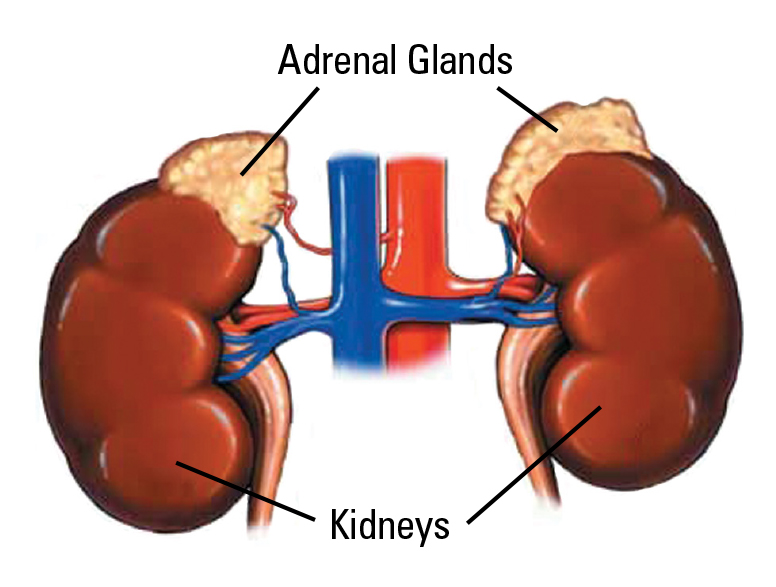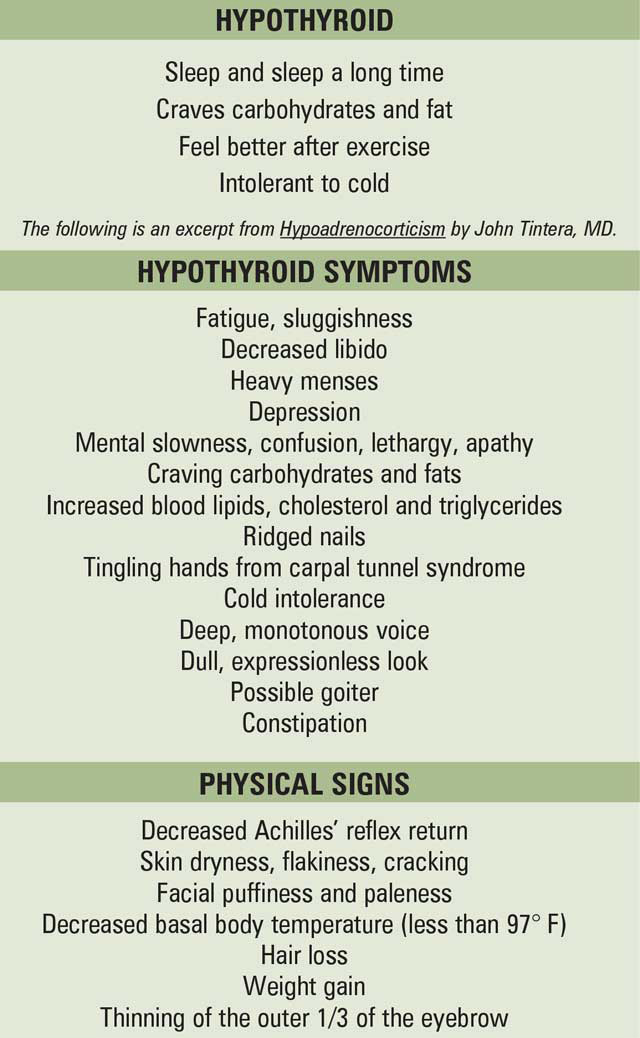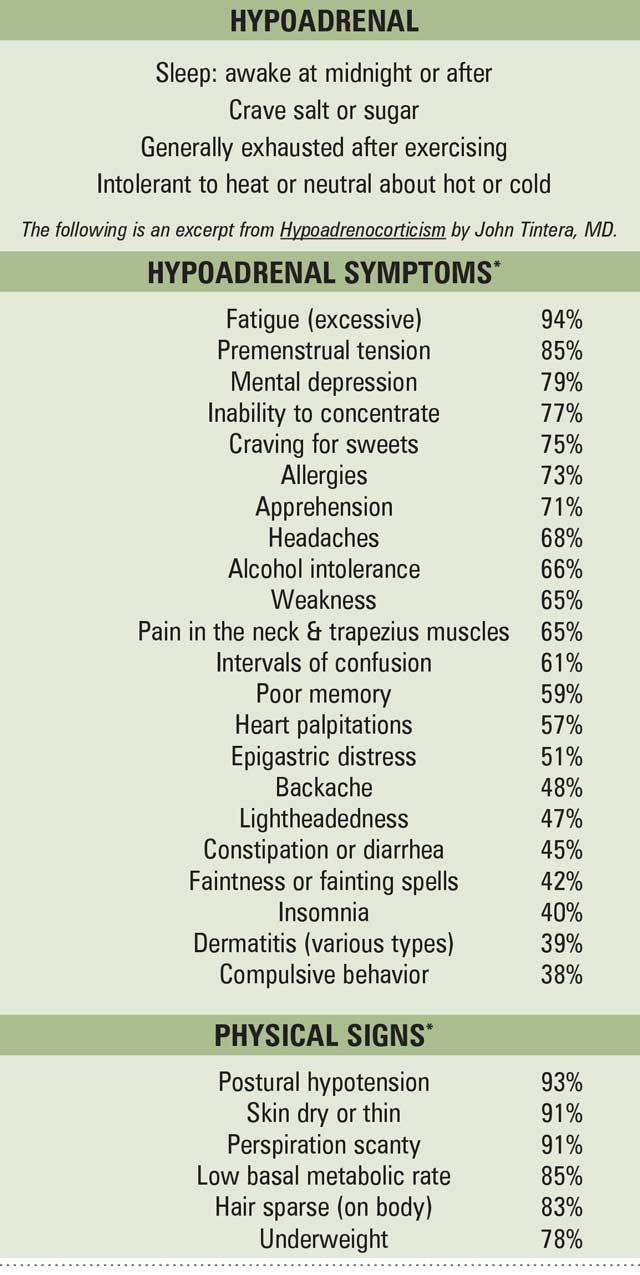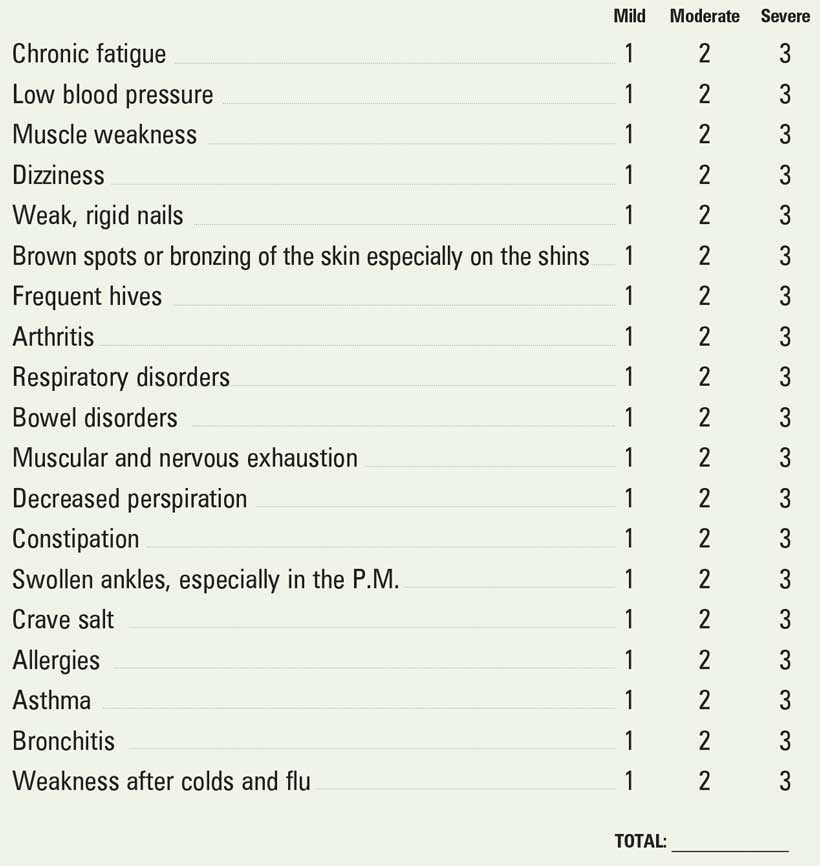ADRENAL BURNOUT AND CHRONIC FATIGUE
Do your patients wake up every morning feeling burned out and not ready to face the day? They could be experiencing adrenal burnout and chronic fatigue. There are natural ingredients that can help and get them back to being their best.
INFOMEDICA’S BOTTOM LINE:
If your patients struggle with adrenal problems, natural ingredients can help keep them on an even keel and stay emotionally and physically energetic without making them feel “revved up” or jittery.
For optimal adrenal support we recommend a combination of 200 mg of Vitamin C, 10 mg of Vitamin B6, 100 mg of Pantothenic acid, 450 mg of L-tyrosine, 200 mg of freeze dried Adrenal Extract, 125 mg of Licorice Root Extract, 75 mg of Rehmannia Root Extract, 15 mg of Pregnenolone, and 10 mg of DHEA.
Together, these ingredients will:
- Increase alertness without making your patients nervous or jumpy
- Boost physical energy and stamina
- Keep your patients calm and focused
- Help your patients manage stress and adapt to changes throughout the day
Imagine awakening every morning feeling completely inadequate to meet the demands of the day. How would that feel if even a little physical or mental stress left you feeling drained? Problems such as these have an enormous negative impact on relationships, careers, and personal happiness. And the root cause is very often impaired adrenal and/or thyroid function. In fact, questions about the adrenal and thyroid glandular systems, and the symptoms of underactive adrenal and thyroid function are asked more than just about any other health topic. So many people feel helpless in dealing with their exhaustion following any “fight or flight” stress response. It is known that adrenal burnout and an underactive thyroid can have long-term, serious consequences. The symptoms can be confusing regarding whether the issue is with the thyroid or adrenal. Are you wondering if your patient’s adrenal glands are less than optimal? It is more widespread than you may think.
Fortunately, there are amazing ingredients that can rejuvenate the adrenal glands and help your patients live the kind of life they may have only imagined.

Adrenal Function
The adrenal glands are two small glands about the size of an acorn, one sitting on top of each kidney. The adrenals produce many hormones that keep us healthy, both physically and mentally. As early as 1898, Emile Sergent, the great French physician, described the two prime functions of the adrenals as antitoxic and angiotonic. His description of the detoxifying functions of the adrenals was brilliant. “Should these glands happen to be damaged, a condition of depression and muscular fatigue is seen to appear which, in man, we shall find in the form of the earlier symptoms of adrenal insufficiency-asthenia” (physical weakness and loss of strength). Functional adrenal insufficiency is due to a number of factors: inadequate development from birth, exhaustion by fatigue, age related degeneration, chronic stress or any factor which, without provoking organic disease of the glands, is capable of reducing their normal activity. Other symptoms which may occur are sensitivity to cold, low blood pressure, weak heart action and pulse, anorexia, slow metabolism, and constipation. People with adrenal insufficiency often have many symptoms associated with upper respiratory problems. They are the ones who always have a cold, allergies, hives and catch any illness that is making the rounds.
There are many other subclinical signs and symptoms of adrenal dysfunction. At the end of this article is a self-analysis to determine your patient’s degree of adrenal insufficiency. With strong adrenal activity, your patient will be healthy, both mentally and physically. People with strong functioning adrenals enjoy friendly confrontation, fear nothing, and many of them become business entrepreneurs or enjoy taking risks in other areas of their lives.
Those with weak adrenals, depending on the degree of insufficiency, have weak muscles, are filled with fear and are afraid to tackle huge projects. They’re afraid to speak up in front of others and would rather die than give a public speech. They are usually content just getting by and would prefer working in an occupation that allows them to be in an office by themselves with the door closed and not have to bother confronting their co-workers. They can be unusually shy. They dislike anyone looking over their shoulder, and when this happens, they become nervous and tense. If they have to confront someone either physically or mentally, they will have to lie down later due to the exhaustion caused by the confrontation.
Low Blood Pressure—Not a Healthy State
Regarding hypotension (low blood pressure), since some doctors are so concerned with high blood pressure, low blood pressure may be considered healthy. It is not. Nature always has a balance and high or low is abnormal. It is true that high-performing athletes may have lower blood pressure because they have developed such an enormous cardiac capacity. But if your patient is not a super-athlete, low blood pressure can signal a problem!
Adrenal insufficiency is probably the number one factor underlying many health disorders that no one has an answer for. It usually begins after a period of prolonged stress—emotional or metabolic. Severe fatigue in the morning is the main symptom. Usually, people with adrenal insufficiency describe themselves as “slow starters.”
Interestingly, the ability to resist infections is a function of the adrenal’s integrity even more than the immune system. People with exhausted adrenal glands typically have recurrent minor infections. Post-viral fatigue is common in this case as well. In fact, more than half of chronic fatigue syndrome cases begin after significant stress such as surgery, viral infection, trauma or accident. This inability to recover is in large part due to adrenal exhaustion that has developed due to underlying stress such as poor nutrition, mental and physical stress, overwork and lack of sleep.
Allergies are very often a manifestation of adrenal insufficiency, too. Recurrent sneezing can be a subtle clue of adrenal weakness. In nearly every case of multiple chemical sensitivity syndrome, low adrenal function has been the underlying cause. Those who have less severe sensitivities have proportionately less severe adrenal insufficiency. Because their condition began with a viral infection and other stressful challenges to the adrenal glands, people suffering from chronic fatigue syndrome generally improve when their adrenal glands are rejuvenated.
Low Thyroid (Hypothyroidism): Similar, but Not the Same
Hypothyroidism can also play a significant part in this complex condition. Stiffness upon rising, especially of the low back, is often a complaint, which usually subsides after a hot shower. Sore throats in the morning are common as well, usually resolving later in the day. Sound like common symptoms? Then your patient may want to consider supporting both the adrenal glands and the thyroid gland.
You CAN Repair the Adrenal Glands
The Right Diet
The ideal diet for someone experiencing adrenal insufficiency would be similar to the diet for the hypoglycemic person—or almost anyone, really. It should be low in carbohydrates (no refined carbs and no sugar) and emphasize whole, unprocessed proteins and high quality fats, including olive oil and butter. For truly excellent diets rich in natural fats and proteins, take a look at ketogenic-diet-resource.com. For great grain-free and gluten-free meal plans and the science behind them, explore Dave Perlmutter MD’s website at DrPerlmutter.com. Both sites provide a wealth of recipes and solid information that can help your patient regain energy and peace of mind.
For adrenal repair, sodium is a critical factor and should not be avoided. However, the salt should be of high quality and not refined white salt or white sea salt. A great option is Celtic sea salt, usually ½ teaspoon of salt to a quart of water, three quarts of the salt and water combination per day.
The Right Nutrients
There are specific nutrients that can help repair adrenal insufficiency. For instance, B vitamins—particularly vitamin B6 (P-5-P, the biologically active form of B6) and pantothenic acid are a must. L-tyrosine helps produce the adrenal hormones epinephrine and norepinephrine. Your patients need vitamin C because the only place in the body that vitamin C is temporarily stored is in the adrenal glands. DHEA and pregnenolone are two adrenal hormones that are also precursors for all other hormones. Consider supporting adrenal function with freeze dried adrenal extract. There are also two herbs that can support adrenal function; licorice (Glycyrrhiza glabra) root extract and rehmannia (Rehmannia glutinosa) root extract. Both support liver function and restore adrenal function. They also facilitate the body’s normal response to stress, and help keep adrenal hormones active longer.


With these nutrients and the right diet, your patient can bounce back from adrenal exhaustion and begin living a vibrant, full, and fearless life!
To prevent adrenal burnout and keep your patient’s adrenal glands healthy, recommend an adrenal gland extract daily combined with vitamin C, vitamin B6 in its active form (P-5-P), pantothenic acid, l-tyrosine, licorice root extract, rehmannia root extract, pregnenolone, and DHEA.
QUESTIONNAIRE: ADRENAL BURNOUT OR JUST A BAD DAY?
The following questionnaire will help determine whether or not your patient could possibly be experiencing adrenal insufficiency (underactive function).
Circle the number that is most appropriate for them. If the indication does not apply to them, then just leave it blank. If they experience that indication in a mild way, circle #1. That means they may experience that indication once or twice a month. Circle #2 for moderate symptoms, which means they may occur several times a month. Circle #3 for severe symptoms, which are symptoms that they are aware of almost constantly. Do not ask family members and friends if they think your patient has these problems. Do not overthink—try to answer these questions instantly. Your patient should know at once if they have one of these indications.
RESULTS: After they’ve circled the correct numbers, add their score.
SCORING:



*Percentage of people with adrenal insufficiency who exhibit this condition



